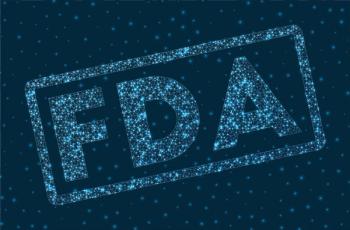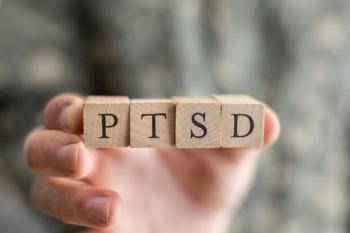
- Psychiatric Times Vol 36, Issue 6
- Volume 36
- Issue 6
Out of the Mouth of Babes: School Shooting Survivors Share Their Insights, Concerns
Despite the outpouring of support, are survivors of mass shootings getting the care they really need?
Despite the outpouring of support, are survivors of mass shootings getting the care they really need?
In the days following the three suicides of school shooting survivors and in anticipation of the 20th anniversary of the Columbine shooting, Parkland and Columbine students took time to contemplate the attacks and how their lives have been affected. Both groups have been outspoken about the need for better approaches to assisting survivors in the days, weeks, months, and years following such tragedies.
“I remember struggling with not sleeping or eating,” shared Kyra Parrow, a survivor of the Parkland shooting.1 “I remember quitting varsity track and field after six years, giving up my position of captain. I remember struggling with an assigned essay for one class, as the constant thought of my lost friends weighed on my ability to focus. When I confided in my teacher that I was unable to write, she told me to put my grief in a box and complete the paper.”
“Two weeks after the shooting occurred, students and teachers were expected to return to the campus and the crime scene,” she added. “The mental health professionals made available were largely inaccessible and insufficient for the more than 3000 students and staff navigating their trauma and grief.”
After the shooting, Broward County Schools opened several grief counseling centers and brought in 25 mental health clinicians, two guidance counselors, and therapy dogs.1,2 However, Parrow noted that there was no consistency in the therapy offered. Students and teachers seeking counseling often saw a different clinician at each visit, which meant they did not have the opportunity to build a therapeutic alliance or receive any sense of stability. Parrow added, “The therapy dogs, painting rocks, and hugs provided were a bandage to deep mental wounds that needed stitches.”
This wave of short-term help seems to be standard operating procedure for these tragedies. Unfortunately, Parrow said she and her classmates were never given instruction or support on what to do next-how to continue to heal and cope.
“What blows my mind is that everybody just expects these kids to go on,” said Gerry Griffith, a crisis counselor who works with communities following such traumas.3 During her 30-year career, she has been part of the response teams at the Oklahoma City bombings and September 11th. She explained that response teams assist for a few days after an incident and leave behind information.
To add insult to injury, the multitude of resources may have been overwhelming to the victims. Cindy Arenberg Seltzer, the president and CEO of the Children’s Services Council of Broward County, explained that the variety of resources may have made it difficult for victims to know where exactly they could get the best help.4
The Columbine and Parkland survivors also complained of a “grieving Olympics”- an artificial pecking order of how much grief you should feel based on how close you were to the incident. “We have to recognize that whoever was on campus that day, no matter where you were, it might not have been as bad as other people, but you still went through a really hard occurrence,” shared Sari Kaufman, who was a sophomore at Parkland on the day of the shooting.5
Coni Sanders, whose father was killed at Columbine, participated in the group survivor discussion.5 She received pushback for her trauma since she was not physically present at the shooting. Still, it was an event that continues to haunt and affect her.
The survivors all noted that the stigma of asking for help needed to end. They complained of the sense that only the weak needed help as well as the awkwardness of asking for help. “If you’re having a breakdown or you feel like you have some anxiety, you physically have to raise your hand and say, ‘can I go to the wellness center?’’’ explained Kaufman. As a result, she believes many suffered, and continue to suffer, in silence.
For that reason, Parrow said she now believes it should be mandatory for everyone affected to see a therapist.1
Supporting this notion, Kelly Posner Gerstenhaber, PhD, Professor of Psychiatry in the Vagelos College of Physicians and Surgeons at Columbia University and founder and Director of The Columbia Lighthouse Project, emphasized the need to actively grant help to survivors.5 “When a kid or a parent or anybody is suffering, they actually want help, and they just don’t have the will to come to you. We’ve learned that asking directly will save lives.”
Meanwhile, a number of organizations in Parkland have come together to create yet another wellness center for survivors. Eagles Haven, which opened at the end of March, was designed as a “community wellness center” offering a “responsive and nurturing place to call or drop in for any supportive service or wellness needs 7 days a week, free of charge.”6 According to their website, they offer support groups, kickboxing, healthy eating, pet experiences, yoga, open mic music, and more. The website further notes that they are not a therapy center, and their “staff are trained trauma clinicians who can listen to your needs and connect those interested in seeking therapy with a qualified therapist in the community.”
Many took to Twitter to express their frustration over the recent suicides and the lack of appropriate help. One tweet read7:
These kids need more.
Not “trauma specialists” trained in 3 days.
Not a hug from the . . . principal.
Not painted rocks or cards.
We need real help. Real specialists. Real empaths.
No more half-assed effort for full blown trauma and depression. This is what it does.
Perhaps the take-home lesson is that the psychic injury from these tragedies are not acute, but chronic. One of the Parkland survivors took her life nearly a year after the incident and, according to her mother, had just been diagnosed with posttraumatic stress disorder; the Sandy Hook father took his life almost seven years after that tragedy.
In their discussion, both Parkland and Columbine survivors noted the idea that the trauma does not stop when the bullets stop. After the shooting, Columbine’s principal told the students-and continues to remind all survivors-recovery is a marathon, not a sprint.8 “Surviving a mass shooting stays with you,” said Brandon Abzug, a Parkland survivor. “It’s inescapable.”5
References:
1. Parrow K. Parkland students like me were told to get over our grief. We didn’t get the support to do it. Vox. March 2019.
2. Phillips D. Grief counseling centers available for Stoneman Douglas students, staff, families. Sun Sentinel. February 2018.
3. Kirby J. A crisis counselor on the struggle to respond to mass tragedies. Vox. February 2018.
4. Fieldstadt E. Sydney Aiello, a Parkland School shooting survivor, kills herself. NBC News. March 2019.
5. Drash W. 20 years on, Columbine survivors tell Parkland students: ‘We’re sorry we couldn’t stop it.’ CNN. April 2019.
6. Eagles’ Haven.
7. Nashrulla T. Parkland teens say the suicide deaths of two shooting survivors is a “wake-up call” for America. Buzzfeed News. March 2019.
8. Van Brocklin E. He was the principal at Columbine. Helping communities heal became his life’s work. The Trace. April 2019.
Articles in this issue
over 6 years ago
Overcoming Treatment Resistance: Can Pharmacogenetics Help?over 6 years ago
Treating Patients With Comorbid Anxiety and Diabetes Mellitusover 6 years ago
Chatbots: What Are They and Why Care?over 6 years ago
The FDA on ECT: Supporting a Vital Treatmentover 6 years ago
Serial Pleasuresover 6 years ago
Strategies to Facilitate a Positive Clinical Encounterover 6 years ago
Medication-Assisted Treatment on a Budget: Two You Should KnowNewsletter
Receive trusted psychiatric news, expert analysis, and clinical insights — subscribe today to support your practice and your patients.







